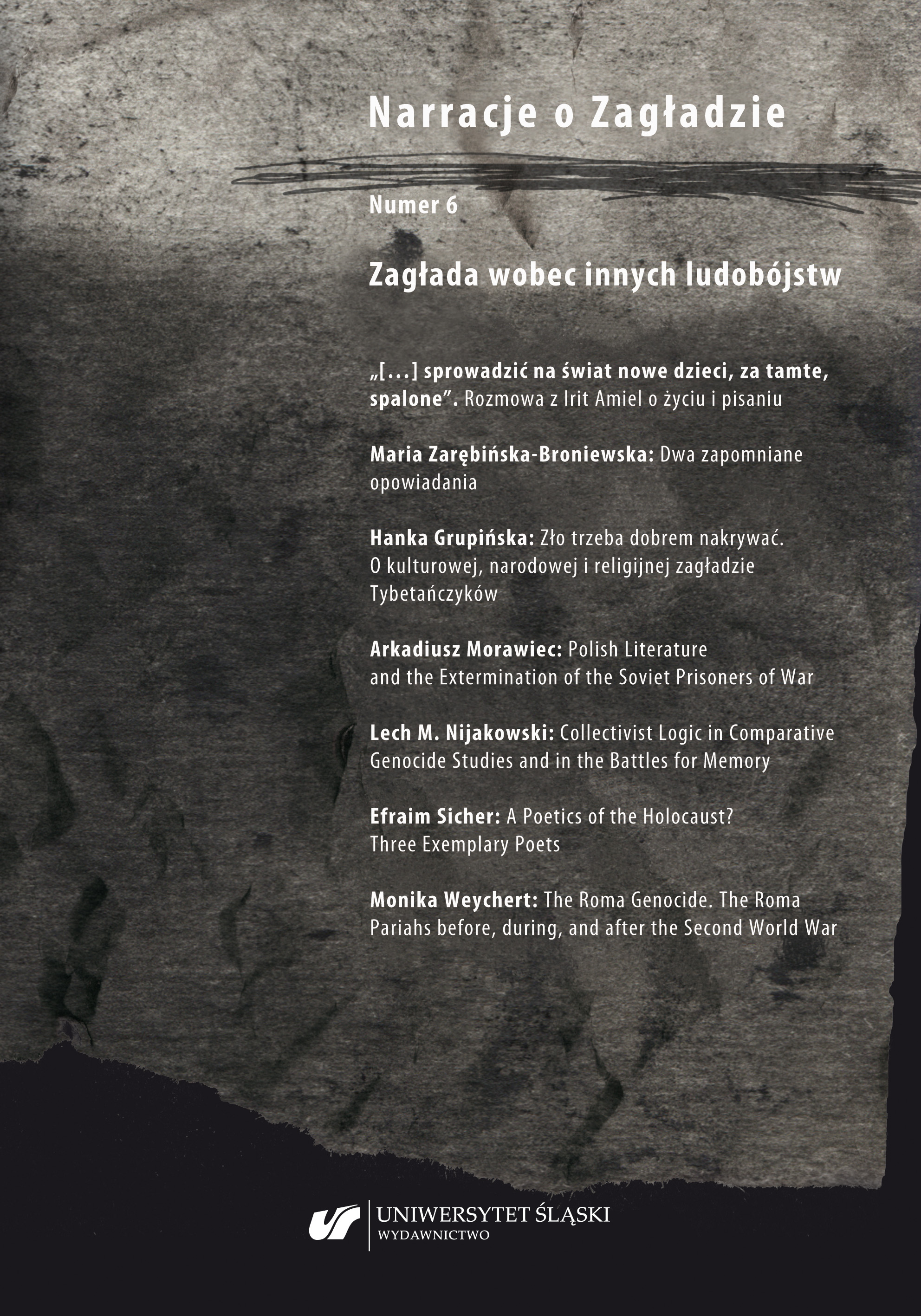A Poetics of the Holocaust? Three Exemplary Poets
A Poetics of the Holocaust? Three Exemplary Poets
Author(s): Efraim SicherSubject(s): Jewish studies, German Literature, Polish Literature, Other Language Literature, History of the Holocaust
Published by: Wydawnictwo Uniwersytetu Śląskiego
Keywords: Holocaust; poetry; trauma; poetics; Abraham Sutzkever; Paul Celan; Czesław Miłosz
Summary/Abstract: Whether or not we understand the Holocaust to be unique or following a series of catastrophes in Jewish history, there is no doubt that the writing that came out of those traumatic events is worth examining both as testimony and as literature. This article looks again at Holocaust poetry, this time circumventing Adorno’s much-cited and often misquoted dictum on poetry after Auschwitz. The essay challenges the binary of either “Holocaust poetry is barbaric and impossible” or “art is uplifting and unaffected by the Holocaust.” I analyse three individual cases of Holocaust poetry as a means of both survival and testimony during the Holocaust – not retrospectively or seen by poets who were not there. Aesthetic and ethical issues are very much part of a writing in extremis which is conscious of the challenge well before Adorno and critical theory. In a comparison of Celan, Sutzkever, and Miłosz we can see their desperate attempt to write a poetry that meets the challenge of the historical moment, for all the differences between them in their cultural backgrounds, language traditions, and literary influences. As I argue, although scholars and critics have read these poets separately, they should be studied as part of the phenomenon of grappling with an unprecedented horror which they could not possibly at the time understand in all its historical dimension and outcome. We should no longer ignore their sources and antecedents in trying to gauge what they did with them in forging a “Holocaust poetics” that would convey something of the inadequacy of language and the failure of the imagination in representing the unspeakable, which they personally experienced on a day to day basis. By not reading “after Adorno” we can arrive at a more nuanced discussion of whether there is a Holocaust poetics.
Journal: Narracje o Zagładzie
- Issue Year: 2020
- Issue No: 6
- Page Range: 343-371
- Page Count: 29
- Language: English

